
Understanding peptide therapy’s potential risks and benefits is crucial for making informed decisions about its use. In the following article, I will delve deeper into peptide therapy’s specific benefits, uses, and potential risks. Read below to find out about my favorite peptide therapy resources and why I’m choosing to use peptides.
Dear Diary,
I’ve done it. I’ve gone full-crazy….at least according to my close friends. I’m taking injectable peptides. “Why?” they ask. “Why not?” I say! Let’s dive in…
Peptides- what are they?
Peptides are short-chained amino acids, the “building blocks” of proteins. Our bodies make peptides to serve some of their most essential functions. Researchers have been studying and developing peptides to treat medical conditions since the 1920s. Insulin was the first synthetic peptide created in a lab in 1923 to treat people with Type 1 diabetes. Other peptides have been added to skin care products for decades, such as collagen peptides, copper peptides, and Matrixyl 3000. These remarkable tiny molecules are responsible for signaling the cells in your body to perform certain functions.
Administration routes of peptides.
Therapeutic peptides can be taken orally, topically, intra-nasally, and by injection (intramuscularly, intravenously, and subcutaneously). Most peptides are not stable and break down quickly when ingested or applied topically, thereby not being used to their full potential. These small molecules can get into the cell fairly easily, and some even cross the blood-brain barrier, but their function is very short-acting. For this reason, most peptide experts feel they work best when given in the injectable form.
The benefits of peptide therapy.
There are thousands of peptides in the body, most likely some that have not been discovered yet, many of which are now made synthetically by research labs. Each peptide has several functions as they work on cells, tissues, organs, muscles, bones… you name it! Some peptides like BPC 157, TB 500, and GHK-Cu are used for wound healing and tissue repair. Other peptides, like PT-141, may improve libido, sexual health, and other various disorders. Recently, the most popular peptides that help promote weight loss and improve metabolic dysregulation include Semaglutide, the active peptide in the prescription drug Ozempic, and Tirzepatide, the active peptide in Mounjaro. Many others can help with fat loss, including Ipamorelin, Tesofensine, AOD9604, and MOTS-C.
Peptide therapy can improve muscle strength, immune system, brain health, and cognitive issues. It can also promote sleep, increase energy, repair mitochondria, and possibly increase longevity. Even one, Melanotan, can darken your skin color to make you look like you have a tan!
Peptide therapy risks.
Since they naturally occur in the body, peptides are generally safe for most healthy people and are not likely to cause serious side effects. Be aware that the FDA does not test peptides before they’re sold, so do your research and only purchase from a reputable source. Also, talk to your doctor before taking them, especially if you have a medical condition or are taking medications. It’s not recommended for women who are pregnant or nursing to use peptide therapy due to a lack of scientific research on the safety of this category.
As an Amazon Associate, I earn from qualifying purchases. Read my discloser here.
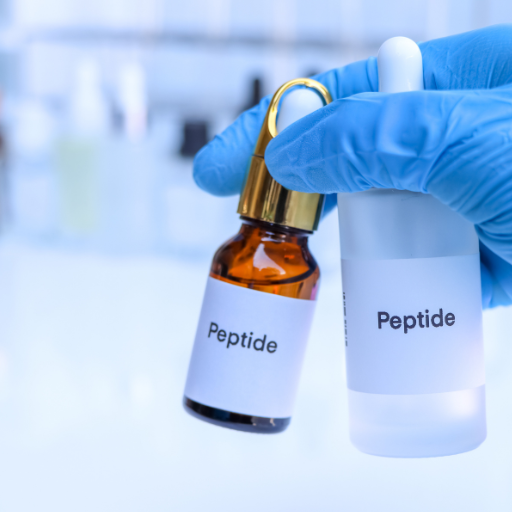
The potential side effects of peptide therapy.
The potential side effects of peptide therapy vary depending on the peptide you are taking and the form in which it’s being administered. Potential side effects of peptide use may include an allergic or non-allergic site reaction when injected or applied topically, such as redness, itching, hives, or swelling. Some peptides may cause temporary gastrointestinal issues, including nausea, vomiting, diarrhea, or constipation, and some may cause mild headaches or dizziness. As with any supplement and in rare instances, a possible side effect could be a severe allergic reaction.
Are peptides steroids?
Although some peptides are useful for muscle building, fat loss, and tissue repair, they are NOT steroids. Many bodybuilders and athletes love using therapeutic peptides because of their amazing benefits; however, some competitive sports organizations have banned the use of certain peptides.
Why do I use peptides?
You may wonder, “If peptides naturally occur in the body, why would you need to take them exogenously?”. The theory is that our bodies stop producing as many peptides as we age. It’s unclear whether this is due to the natural process of aging or potentially induced by our unhealthy environment and lifestyle choices (EMFs, pesticides, high sugar diets, etc). Whatever the reason, wouldn’t it be great if science had unlocked the door to the fountain of youth through peptide therapy?
Better skin elasticity, increased muscle tone and bone density, more energy, deeper sleep, improved libido, and maybe even longer lifespan—sounds good to me! Count me in! Of course, everything has potential risks, but I chose to try peptide therapy because peptides are naturally occurring molecules in the body. I’m excited about the possible results I may see by replenishing them with few risks or side effects.
Where can I learn more about peptides?
There are several resources for peptides. I purchased several books, read everything I could find online about them, and listened to many podcasts by experienced peptide users.
This post contains affiliate links, so I make a small commission at no extra cost to you. For a full privacy policy, click HERE.
My favorite peptide books.
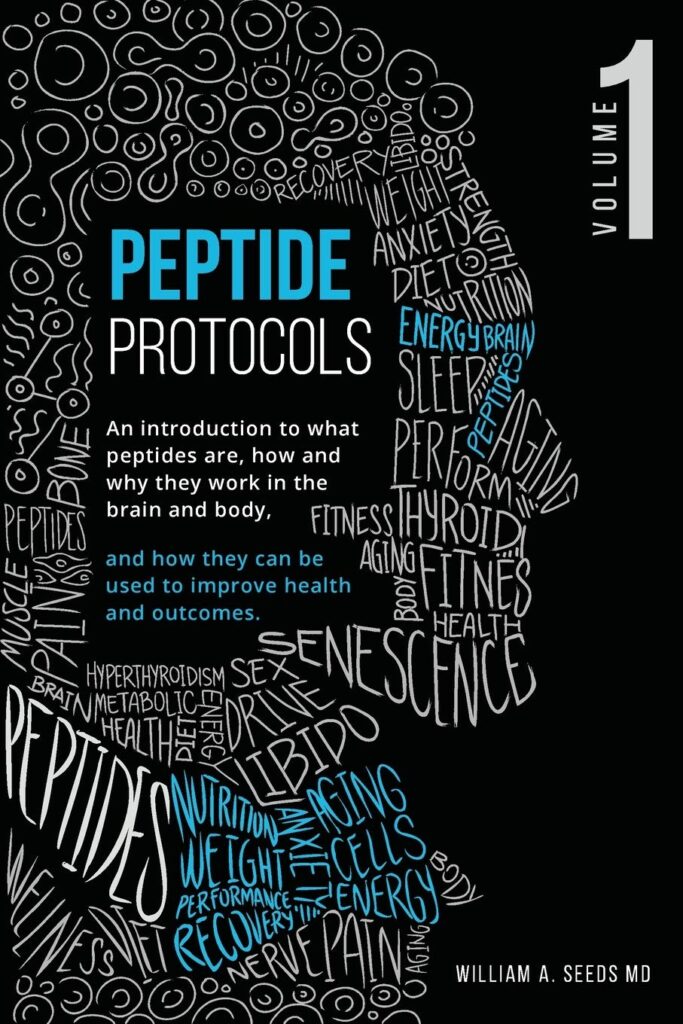
Peptide Protocols by Dr. William Seed
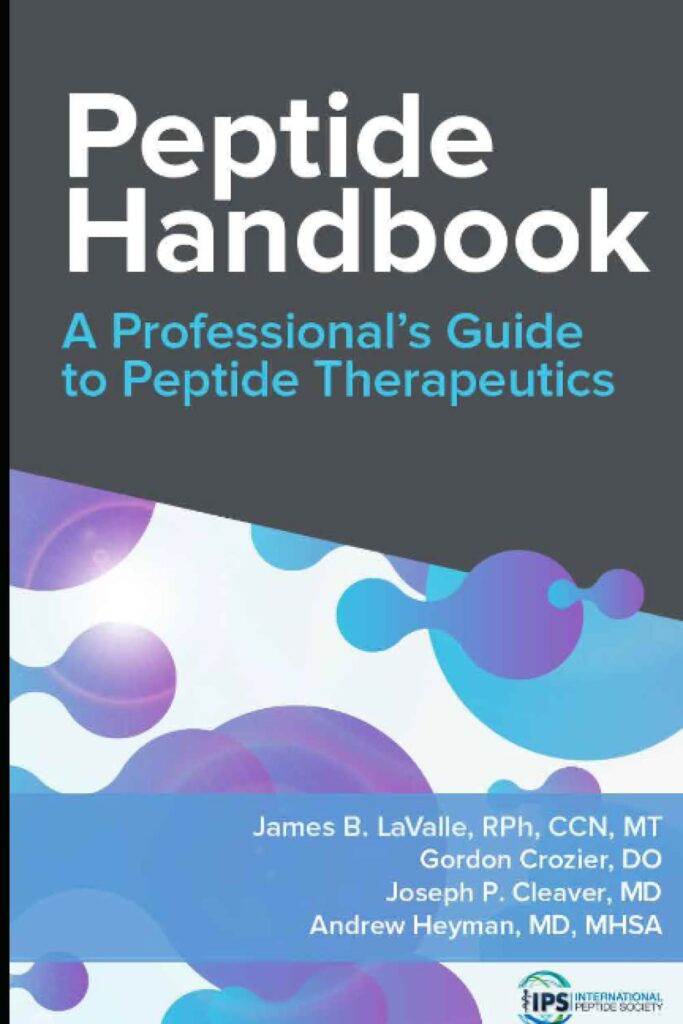
Peptide Handbook by James LaValle
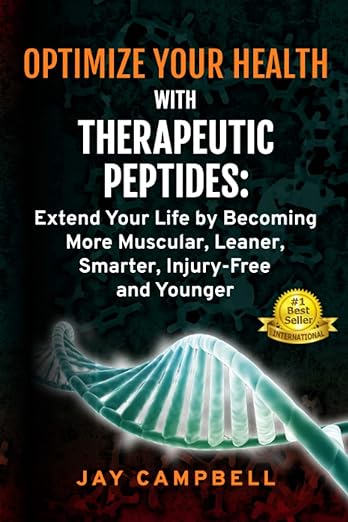
Optimize Your Health with Therapeutic Peptides by Jay Campbell
My favorite websites and podcasts about peptides.
Nathalie Niddam is a certified holistic nutritionist and epigenetic coach with a wealth of information on many health topics, including peptides. Here are just a few of her podcast episodes that I love:
- Episode #225: A Deep Dive Into Fat Loss Peptides.
- Episode #228: Uncovering The Truth About Peptides, Blood Sugar, Hormones and Weight Loss.
- Episode #221 The Ultimate Intro To Bioregulator Peptides.
Hunter Williams has a YouTube Channel. He is a health coach who shares his experience with peptides. In his videos, Hunter not only explains the uses, benefits, and potential risks of individual peptides but also tells how to stack them with other peptides for even more benefits.
Jay Campell’s website. Jay is a peptide expert with experience using peptides for 20 years. On his site, he has many articles about several different peptides, plus he tells where to purchase them.
Share your thoughts with me.
My peptide journey began two years ago when I worked for a health clinic. Other staff members and I took the supplement called NAD+. I loved the positive effects of that injection each week- energy, clear-headedness, and deeper sleep. I’ve been immersed in researching other therapeutic peptides and their uses, benefits, and potential risks. It wasn’t until a few months ago. I finally decided to start trying other peptides, and I’ve seen remarkable improvements in my overall health. At this point, I’ve tried eight different peptides, and I plan to try many more. Interested in hearing about my peptide journey? Comment below if you’d like to know more about the peptides I’m using, why I chose certain ones, and what my effects are so far.
Pin it for later.
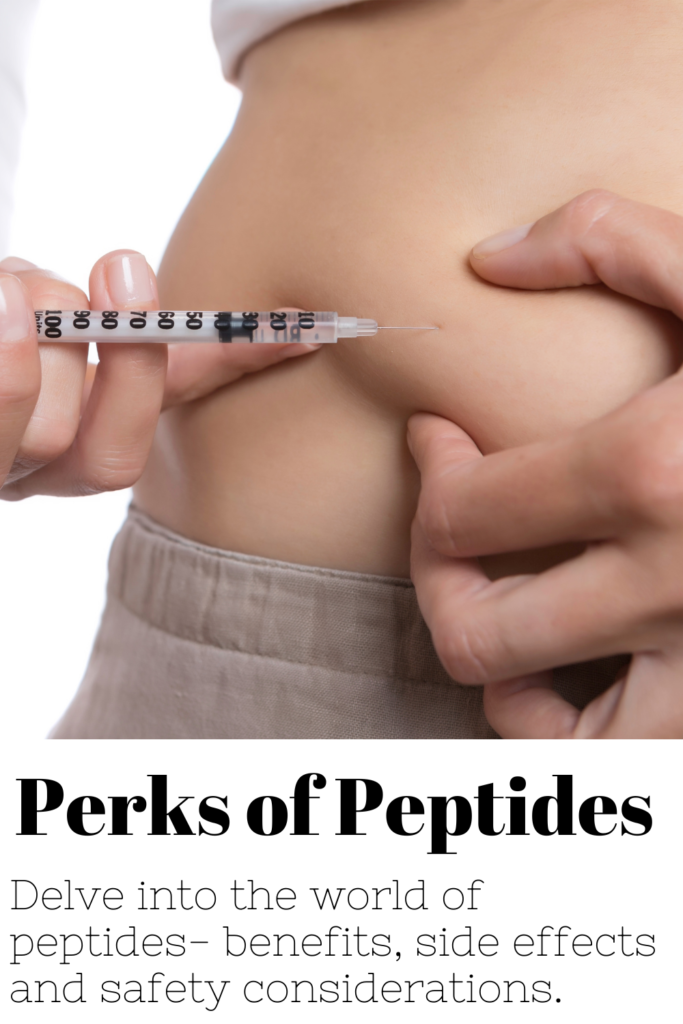
Some articles referenced in this post.
https://www.medicalnewstoday.com/articles/326701
https://livvnatural.com/types-of-peptides-and-their-uses/

[…] Related Post: Read my article about injectable peptides’ side effects, benefits, and risks. […]